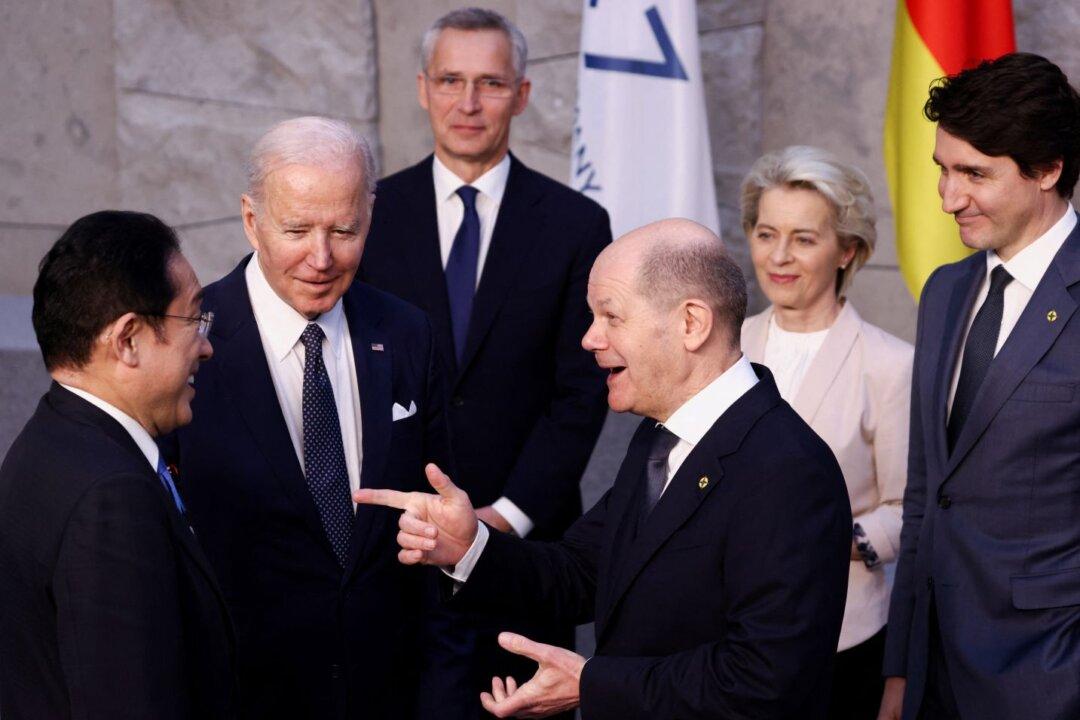NATO on Thursday issued a lengthy statement laying out its defense readiness doctrine against Russia, condemning Moscow’s invasion of Ukraine “in the strongest possible terms.”
“We, the Heads of State and Government of the 30 NATO Allies, have met today to address Russia’s aggression against Ukraine, the gravest threat to Euro-Atlantic security in decades. Russia’s war against Ukraine has shattered peace in Europe and is causing enormous human suffering and destruction,” said the statement ahead of a summit in Brussels.





